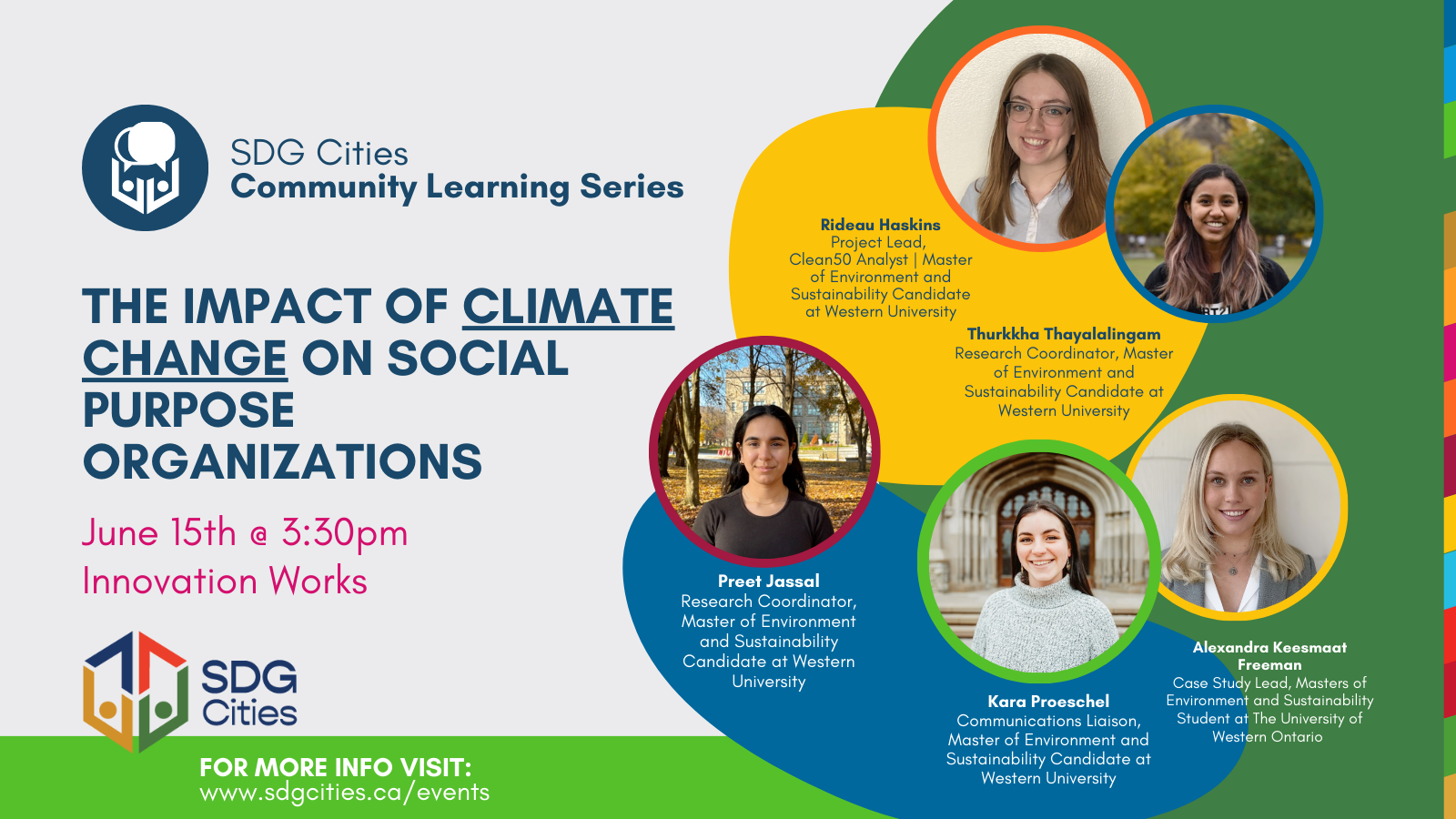
The effects of climate change are widespread, leading to long-term social, economic, and environmental impacts. For mid-sized Canadian cities, some of the major environmental impacts include food insecurity, extreme weather, and environmental pollution.
Understanding the intersectionality between social issues in the urban sector and climate change allows organizations to create targeted and effective climate action programs.
In this event you will learn:
-
Some of the linkages between climate change and social issues such as poverty, racial inequalities, mental health, climate migration, and food access.
-
About five social purpose organizations that have implemented socio-environmental intersectional programming who were researched and interviewed for this report.
-
A series of recommendations regarding how Canadian social purpose organizations can incorporate climate action into programming and mitigate the negative impacts climate change has on their operations.
The full report, five case studies and an educational primer will be available as resources for social purpose organizations to be informed on the intersectionality between the urban social sector and climate change issues.
WHO SHOULD ATTEND?
Individuals who work in the social sector and nonprofit organizations addressing social issues addressing poverty, houselessness, food insecurity and racism among others.
ABOUT THE PRESENTERS:
Rideau, Kara, Thurkkha, Preet and Alexandra are recent graduates from the Master of Environment and Sustainability (MES) program at Western University. This research project was developed as part of their degree.
Rideau Haskins | Project Lead
Rideau has a Bachelor of International Development and Globalization and a Minor in Feminist and Gender Studies, and leadership experience with multiple social purpose organizations. Rideau has the expertise to analyze environmental issues through an intersectional lens. Learn more about the team:
Kara Proeschel | Communications Liaison
Kara has a Bachelor of Arts Honors degree in Sociology with a minor in Indigenous Studies. She is passionate about incorporating isolated communities and perspectives into environmental problems and solutions.
Thurkkha Thayalalingam | Research Coordinator
Thurkkha has a Bachelor of Science in Environment & Health, Biodiversity & Conservation Biology, Physiology, and a certificate in Sustainability Pathways. She is an expert in linking environmental issues to human health and well-being.
Preet Jassal | Research Coordinator
Preet has a Bachelor of Science in Biology from Western University. She is an experienced researcher with refined analytical skills from working on various quantitative and qualitative data projects.
Alexandra Keesmaat Freeman | Case Study Lead
Alexandra has a Bachelor’s Degree in Global Justice from Western University with a minor in Psychology. She is passionate about bringing her global justice background to the sustainability field.
-----------
SDG CITIES PROGRAM
-----------
SDG Cities is a collaborative, community-driven program supporting localization of the UN Sustainable Development Goals (SDGs) in Guelph and London.
The program is funded by the Government of Canada’s Sustainable Development Goals Program.
